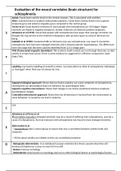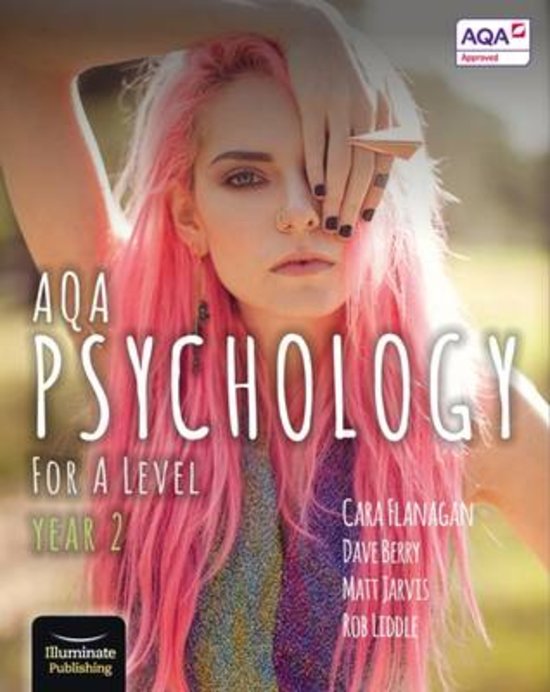Visual
Evaluation of neural correlates for schizophrenia
This page contains the key information and studies to evaluate the neurology of schizophrenia. These studies have been sourced via several sources including the AQA second-year psychology textbook (found on the illuminate publishing website). This saves a lot of time you may spend searching for inf...
[Show more]




